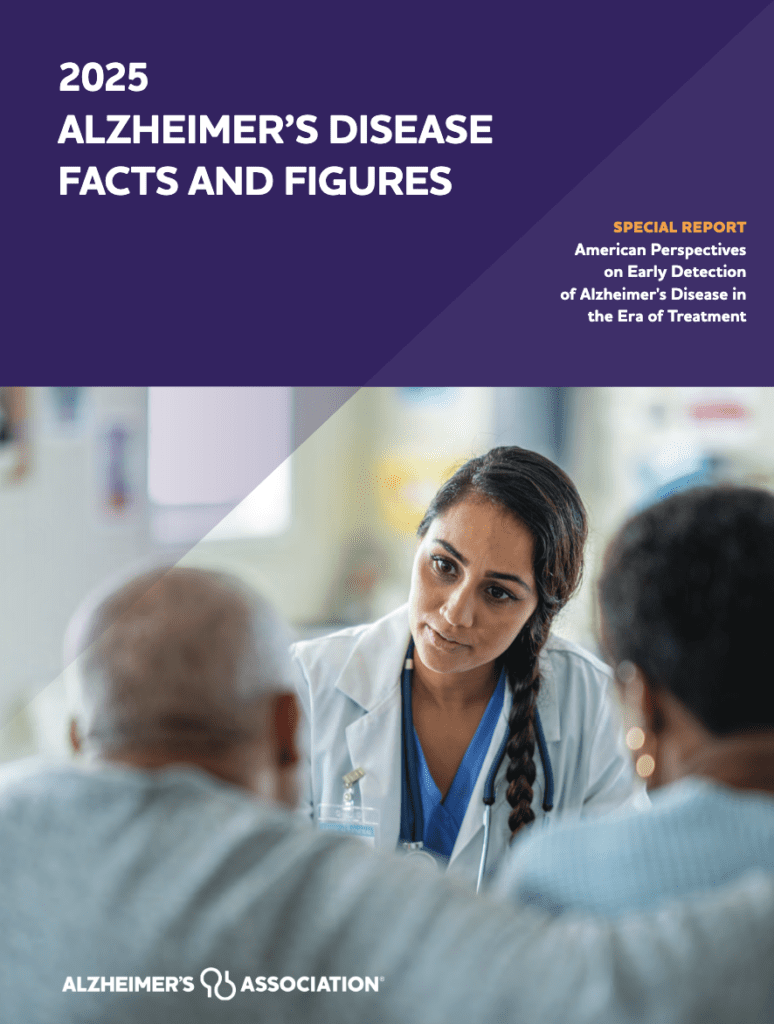Search Posts
Recent Posts
- Dr. Rosemary Costigan Named President of Community College of Rhode Island June 19, 2025
- RI Veterans: Did you know? 19.06.25 (Military Funerals, Job Fair, Benefits, Events) – John A. Cianci June 19, 2025
- East Providence First in U.S. to Equip All Firefighters with PFAS-free Gear June 19, 2025
- We Cook! Mill’s Tavern Saffron Bouillabaisse with Tarhana Lobster Jus June 19, 2025
- Rhode Island Weather for June 19, 2025 – Jack Donnelly June 19, 2025
Categories
Subscribe!
Thanks for subscribing! Please check your email for further instructions.

National report says Alzheimer’s Disease expected to skyrocket – Herb Weiss
By Herb Weiss, contributing writer on aging issues
The 2025 Alzheimer’s Disease Facts and Figures report, released last week by the Chicago-based Alzheimer’s Association, highlights a dramatic rise in the number of Americans affected by the disease—signaling an urgent call to action for policymakers.
According to the report, the total annual costs of caring for people living with Alzheimer’s and other dementias (excluding unpaid care) is projected to be $384 billion in 2025. The projected costs are expected to increase to $1 trillion (in today’s dollars) by mid-century. Additionally, nearly 12 million family members and friends provide 19.2 billion hours of unpaid care, valued at an additional $413 billion. And deaths due to Alzheimer’s disease more than doubled between 2000 and 2022.
Taking a Comprehensive Look at Alzheimer’s

Published annually in Alzheimer’s & Dementia: The Journal of the Alzheimer’s Association, the report has, since 2007, served as the leading source of comprehensive national data on Alzheimer’s disease and related dementias. It offers critical insights into the impact, prevalence, and challenges of Alzheimer’s, shaping national conversations and guiding policy and research efforts.
The new survey findings are included in an accompanying special report, American Perspectives on Early Detection of Alzheimer’s Disease in the Era of Treatment. The nationwide survey of more than 1,700 Americans aged 45 and older examined awareness and attitudes about Alzheimer’s disease, early detection and diagnosis, tests used to help diagnose Alzheimer’s, and treatments that can slow progression of the disease.
Their survey finds that people want to know if they have Alzheimer’s, and they want to know before it impacts their daily life. They want a simple test so they can access care earlier, including treatments that can slow the progression of the disease,” said Elizabeth Edgerly, Ph.D., senior director, Community Programs and Services, Alzheimer’s Association in a statement announcing the release of the report. “Their interest in early diagnosis and treatment highlights how important it is that we keep advancing toward diagnostic testing that is simple to administer and widely available. We also heard loud and clear that Americans want disease-modifying treatments that can make a real difference after an Alzheimer’s diagnosis,” she says.
If diagnosed with Alzheimer’s disease, 83% would be willing to participate in a clinical trial for treatment to help slow or cure the disease, note the findings. And 48% cited the ability to participate in clinical trials as a reason for wanting Alzheimer’s testing.
The study findings suggest that Americans are optimistic about new treatments to slow or prevent Alzheimer’s disease. Eighty-one percent believe that new treatments to stop the progression of Alzheimer’s will emerge in the next decade. And 66% believe that new treatments to prevent the disease will be available soon.
Meanwhile, this year’s findings suggest that Americans are concerned about Alzheimer’s testing and how it could affect future care. Forty-four percent 44% worry that insurance will not cover future care and treatment following testing and 41% stay they are concerned about test accuracy. Other concerns expressed by the respondents include the cost of testing, and losing confidence in abilities or not being allowed to do certain activities (such as driving).
There Are Not Enough Dementia Care Specialists
In the coming years, the 2025 Facts and Figures report warns policy makers of a shortage of dementia care specialists (including neurologists, geriatricians and geriatric psychiatrists) and direct care workers. Fifty-five percent of primary care physicians caring for people living with Alzheimer’s report that there are not enough dementia care specialists in their communities.
Researchers estimate that 34% to 59% of those aged 65 years and older reside in areas with potential dementia specialist shortfalls. The report estimates that more than 18,000 geriatricians will be needed to care for the approximately 12.7 million individuals aged 65 and older projected to have Alzheimer’s dementia in 2050 — more than double the number of geriatricians who were practicing in 2021.
While it is reported that between 2014 and 2023, the number of direct care workers increased from 3.5 million to 5 million due to growing demand for long-term care, researchers estimate that over 861,000 additional direct care workers will be needed by 2032 — more new workers than in any other single occupation in the United States.
Between 2022 and 2032, the report warns that double-digit percentage increases in the number of needed home health and personal care aides will be needed in every state except Maine to meet the increasing demand. Despite recent increases, projections fall short of true workforce demand.
But they remain optimistic that the next decade will bring new Alzheimer’s treatments to slow, prevent and even cure the devastating disorder. Four in five Americans (81%) believe new treatments to stop the progression of Alzheimer’s will emerge in the next decade, and 66% believe new treatments to prevent Alzheimer’s will be available soon.
Taking a Close Look at Rhode Island Statistics
According to the 2025 Rhode Island Alzheimer’s Statistics, 22,000 people are living with Alzheimer’s, representing 11.2% of the population aged 65 or older. There are 37,000 unpaid caregivers providing $52 million in care (valued at $1.4 billion), notes the report’s findings. The statewide deaths from Alzheimer’s disease is 475. Alzheimer’s Disease as a cause of death ranks 5th.
The Rhode Island Fact Sheet notes that the number of Rhode Islanders in Hospice (2017) with a primary diagnosis is 1,657 or 25 percent. In 2018, the number of emergency visits per 1,000 people with dementia was 1,606.
And the state’s Medicaid costs of caring for people with Alzheimer’s in 2025 was $ 613 million. The per capita Medicare spending on people with dementia in 2024 dollars is estimated to be $ 31,741.
Jerry Larkin, MD, Director of the Rhode Island Department of Health commented, “This report shows the need for continued public health efforts to support the growing number of people with Alzheimer’s disease and other dementias in Rhode Island and their caregivers. The Rhode Island Department of Health is committed to supporting social service agencies to address cognitive decline among their patients and community members; improving diagnosis and treatment of Alzheimer’s within primary care; and providing resources and educational tools, such as the RI Brain Health Guide for families to navigate systems to manage this disease.”
On WJAR’s Health Check 10 website, on April 29, 2025, Barbara Morse got the scoop in announcing the release of the latest Alzheimer’s Facts and Figures Report. For the first time, more than 7.2 million people in the U.S. are living with Alzheimer’s, notes Alzheimer’s expert Dr. Ted Huey, the director of the Memory and Aging Program at Butler Hospital in Providence. “That number is expected to double to nearly 14 million by 2040, with an estimated one million new cases each year by 2060,” he says.
Dr. Huey told Morse, “We have the first new disease modified medications in forever. Really, the first ones that remove one of the key proteins that causes Alzheimer’s disease.”
Despite advances in treating Alzheimer’s, federal funding for research is being cut, which could hinder progress. “It would be a shame to cut it now because I think we’re really at a good place and we’re making some real advances,” says Huey.
“The survey showing that more Americans want to know if they have Alzheimer’s and that they are interested in taking a medication to slow the disease emphasizes the need for our important work. We need to educate more people about the 10 Signs of Alzheimer’s, when to take their memory concerns to a doctor and our support programs. This is an exciting time for treatment and we want people to know we are here for them,” says Donna McGowan, Executive Director of the Rhode Island chapter of the Alzheimer’s Association.
“Our survey makes it clear — most Americans want to take action if they experience cognitive problems,” said Alzheimer’s Association Edgerly. “With the rising prevalence of Alzheimer’s, it’s more important than ever that researchers, clinicians, health systems, public health officials and other stakeholders work together to ensure all Americans have access to timely and appropriate Alzheimer’s diagnosis, care and treatment,” she says.
The Alzheimer’s Association is a worldwide voluntary health organization dedicated to Alzheimer’s care, support and research. Its mission is to lead the way to end Alzheimer’s and all other dementia — by accelerating global research, driving risk reduction and early detection, and maximizing quality care and support. For more info, visit alz.org or call 800.272.3900.
29, 2025
To download the 2025 Alzheimer’s Disease Facts and Figures report, go to https://www.alz.org/getmedia/ef8f48f9-ad36-48ea-87f9-b74034635c1e/alzheimers-facts-and-figures.pdf.
___
To read more articles by Herb Weiss, go to: https://rinewstoday.com/herb-weiss/

Herb Weiss, LRI ‘12, is a Pawtucket-based writer who has covered aging, healthcare, and medical issues for over 45 years. To purchase his books, Taking Charge: Collected Stories on Aging Boldly and its two sequels, visit herbweiss.com.
To purchase his books, Taking Charge: Collected Stories on Aging Boldly and two sequels, compiling weekly published articles, go to herbweiss.com – or purchase from Amazon.

.

Great work, Herb.
The news is dire, indeed, that Alzheimer’s and related dementias will become the explosive health issue in the future. For that reason, the cuts to these programs by the current federal administration makes absolutely no sense.
Thank you for your thorough article that makes the public aware they need to prepare for the consequences of Alzheimer’s…now.
In my own right, I go throughout NE, speaking on the topic of “How to Survive and Even Thrive When Caring for a Loved One with Alzheimer’s,” because it is such a difficult journey. My talk is based on my book “Az and Me: A Partner’s Journey with Alzheimer’s,” (Amazon) charting our 15+ years since my husband was diagnosed. You were gracious enough to do a recent focus on my work for Sr. Digest.
Kudos to you, Herb, for bringing public awareness to a monster issue the public will soon confront.
Great information, Herb. I have shared it with my FB audience.
Appreciate your very good work.
It can’t be emphasized enough that despite promising new research, funds have been cut recently by the Trump administration, foretelling far more difficult times ahead, when one considers the numbers and how they are expected to grow.
Colleen Kelly Mellor
author of “Az and Me: A Partner’s Journey with Alzheimer’s”